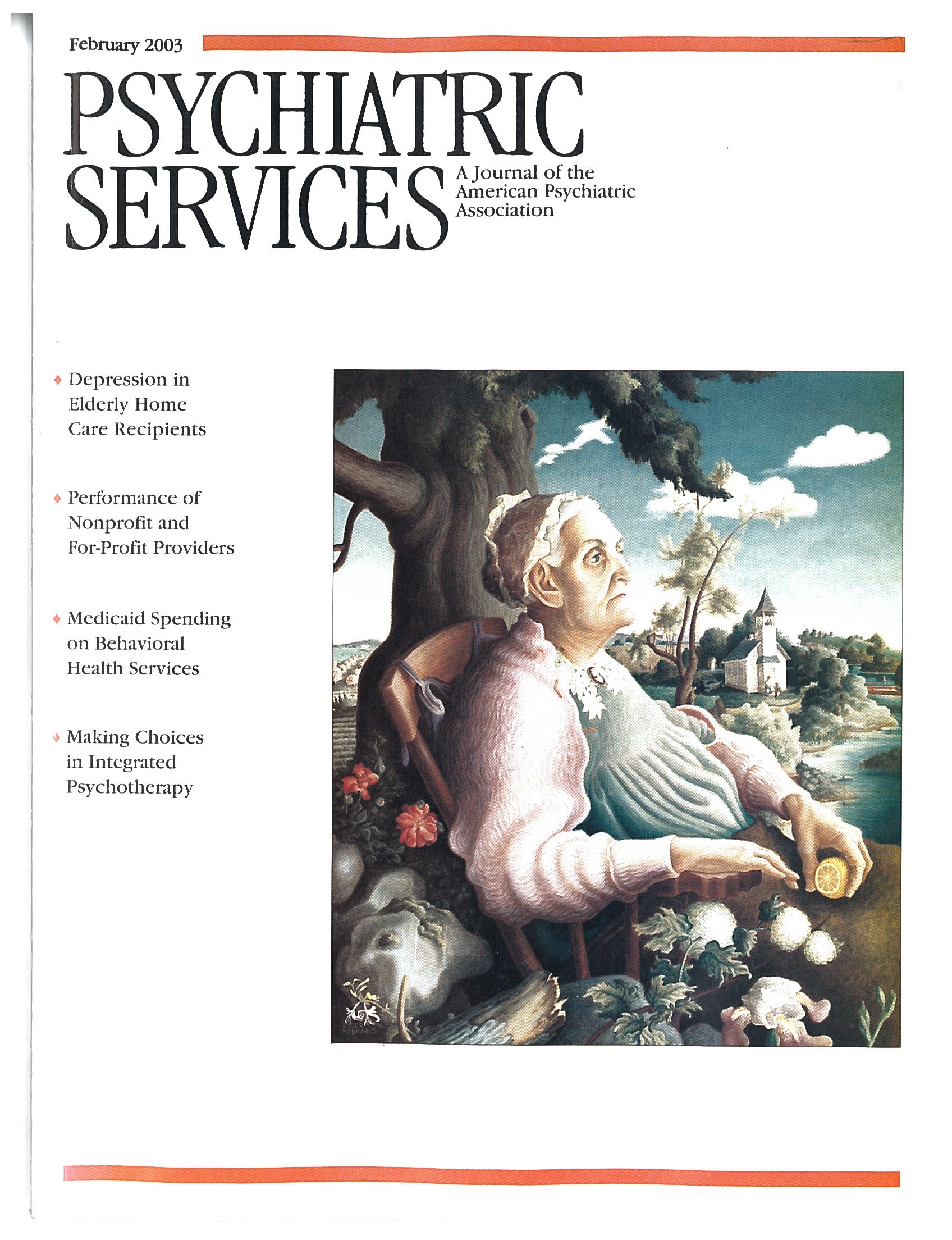To the Editor: Current research on the impact of depressive disorders should include studies that seek to determine how these disorders influence the quality of life of depressed persons (
1,
2). Studies have shown that people who are depressed have deficits in their quality of life that are directly attributable to the mood disturbance and that the degree of the decrement is proportional to the severity of depression (
2,
3). However, these studies have been done almost entirely in English-speaking populations.
We conducted a study to assess all newly diagnosed depressed patients aged 18 to 75 years (N=43) who attended the mood disorders clinic of a Brazilian university hospital between March and October 2001. The study was approved by the hospital's ethics committee. The patients in the sample were administered the cross-culturally validated versions of the World Health Organization's Quality of Life Instrument-Short Form (WHOQOL-BREF) (
4) and the Beck Depression Inventory (BDI) (
5). Possible BDI scores range from 0 to 63, with higher scores indicating more severe depression.
The mean±SD age of the patients was 49.5±12.1 years. The group consisted of 39 women (91 percent) and four men (9 percent). Of these, 35 (81 percent) were Caucasians and eight (19 percent) were African Brazilians. Twenty-five (58 percent) were married, and 39 (91 percent) had at least a high school education. Diagnoses were as follows: major depression, 32 patients (74 percent); dysthymia, six patients (14 percent); and bipolar depression, five patients (12 percent). Thirty-three patients (78 percent) had at least one comorbid axis I diagnosis. No significant differences in WHOQOL-BREF and BDI scores were found on the basis of these sociodemographic variables.
The patients were severely depressed; the mean BDI score for the sample was 31.16±8.52. Analyses using Pearson's coefficient showed a significant inverse correlation between the BDI score and scores on all WHOQOL-BREF domains: physical health, r=-.325, p=.033; psychological status, r=-.519, p<.001; social relationships, r=-.423, p=.005; environment, r=-.414, p=.006; and the overall measure of quality of life, r=-.322, p=.035. Further analysis with unpaired t tests showed that the 26 patients who were more severely depressed (a BDI score greater than 29) experienced significantly worse quality of life in all WHOQOL-BREF domains than the patients with mild or moderate depression.
Our study had several limitations, particularly the small sample and the uncertainty of the extent to which our results can be generalized to community samples. In addition, both the quality of life and depression measures depend on patients' self-reports. Nevertheless, these measures have been validated in several studies, and we believe that they are a reasonably accurate gauge of patient discomfort. Future studies are needed to replicate our findings
Our findings suggest that the WHOQOL-BREF is a sensitive indicator of morbidity and the severity of depressive disorders and that as symptoms of depression increase among Brazilian depressed patients, the patients' quality of life significantly decreases.

